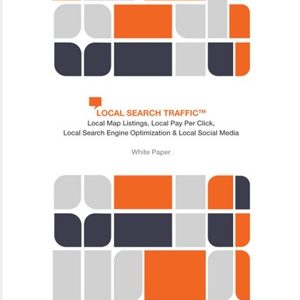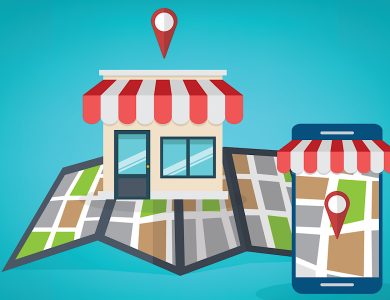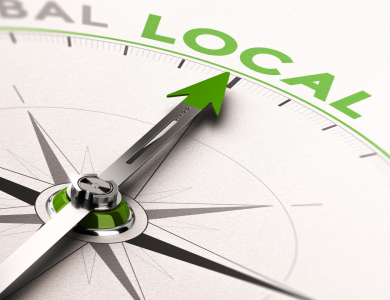
Maximizing your organic visibility for location-based searches is crucial for connecting with local customers. A well-implemented local SEO strategy can significantly boost both your in-store and online traffic and sales.
But what if you don’t have a brick-and-mortar business? Can local SEO still benefit you? Fortunately, the answer is yes!
Today, we’ll explain how to build a strong local search presence without a physical storefront.
Challenges of Local SEO for Non-Physical Businesses
Search engines often prioritize the physical location of businesses when ranking local searches. For instance, a business in Nashville might rank higher for searches conducted within or near the city. This presents a challenge for businesses without a physical address. If search engines rely on physical proximity for ranking, how can an address-less business compete locally?
The good news is that even without a physical address, you can still thrive in local SEO.
If you run a service-area business (meaning you have face-to-face interactions with customers at various locations rather than a fixed business address), you can create a Google Business Profile to manage your local visibility across Search and Maps.
Here’s Google’s take on the matter:
“You can have a profile if your business doesn’t have a physical address as long as you make in-person contact with customers… You may also have a profile if you’re a service-area business that visits or delivers to customers directly, but doesn’t serve customers at its business address, like a plumber or cleaning service.”
Besides setting up a Google Business Profile, there are other strategies to enhance your local SEO presence.
5 Ways to Master Local SEO Without a Business Address
1. Correctly Configure Your Google Business Profile
The first step is setting up a Google Business Profile (GBP) for your service-area business. A GBP provides Google users with essential details about your business, like hours of operation, contact information, and customer reviews.
For service-area businesses, you need to specify your service area by city, zip code, or another type of area instead of using an address. You can select up to 20 service areas, but the total distance should be within a two-hour driving radius from where your business operates.
Make sure to leave the "business location" field blank under the "Info" tab in the Business Profile Manager. Specifying your service area adequately informs Google and users about where you operate.
2. Create Localized Content Targeting Location-Based Keywords
Producing location-specific content can significantly improve your site’s relevance for local searches. This involves creating service pages, blog posts, success stories, and other content relevant to the communities you serve.
Including geo-specific keywords in your content (like the name of the city or neighborhood) enhances your visibility for local searches. For example, if you offer pool maintenance services in Phoenix, you might write articles like "Top Challenges of Pool Maintenance in Phoenix’s Summer Heat."
3. Develop Location-Specific Landing Pages
Dedicated landing pages for each target location can improve your ranking potential for local searches. These pages should include details about the services offered in the area, customer testimonials, and regional promotions. Incorporate local keywords to signal relevance to search engines.
Avoid replicating the same basic page for different areas with minimal changes. Each landing page should offer unique, useful information specific to that area to avoid negative impacts on SEO.
4. Encourage Reviews and Testimonials From Local Customers
Collecting reviews and testimonials from local customers can enhance your local SEO. Reviews provide social proof to potential customers and signal search engines that your business is credible and relevant in a specific area. Encourage customers to leave honest reviews on platforms like Google Business Profile, Yelp, and Facebook.
Responding to reviews is as crucial as collecting them. Engaging with feedback reinforces your commitment to high standards and improves your services. Google encourages businesses to engage with reviews to enhance local rankings.
5. Manage Your Local Citations
Creating and updating online mentions of your business name, service area, and phone number helps your local SEO efforts. Citations from reputable websites like Yelp, Foursquare, and local directories signal to Google that your business is relevant in a specific area.
Ensure your business details are accurate and consistent across all citations. Consistency builds search engines’ confidence to display your business in local search results. Prioritize listings on directories relevant to your industry and location.
What About Online-Only Businesses?
Fully virtual businesses also can benefit from local SEO, although it’s more challenging. Without the option to create listings on Google Business Profile and some directories, these businesses can still implement strategies like localized content creation, targeting location-specific keywords, developing local landing pages, and gathering local customer reviews and testimonials.
No Address? No Problem
Running a business without a physical address doesn’t preclude you from reaping the benefits of local SEO. Various strategies, from setting up a Google Business Profile to creating location-specific content, can help signal to search engines that you operate in specific geographic areas.
Remember, local SEO is an ongoing effort, whether or not you have a physical address.
More resources:
- How Can Small Local Service Businesses Use AI To Improve Their Digital Marketing?
- 7 Ways To Improve Local SEO & Attract New Business
- Local SEO: The Definitive Guide to Improve Your Local Search Rankings
Featured Image: Shutterstock



